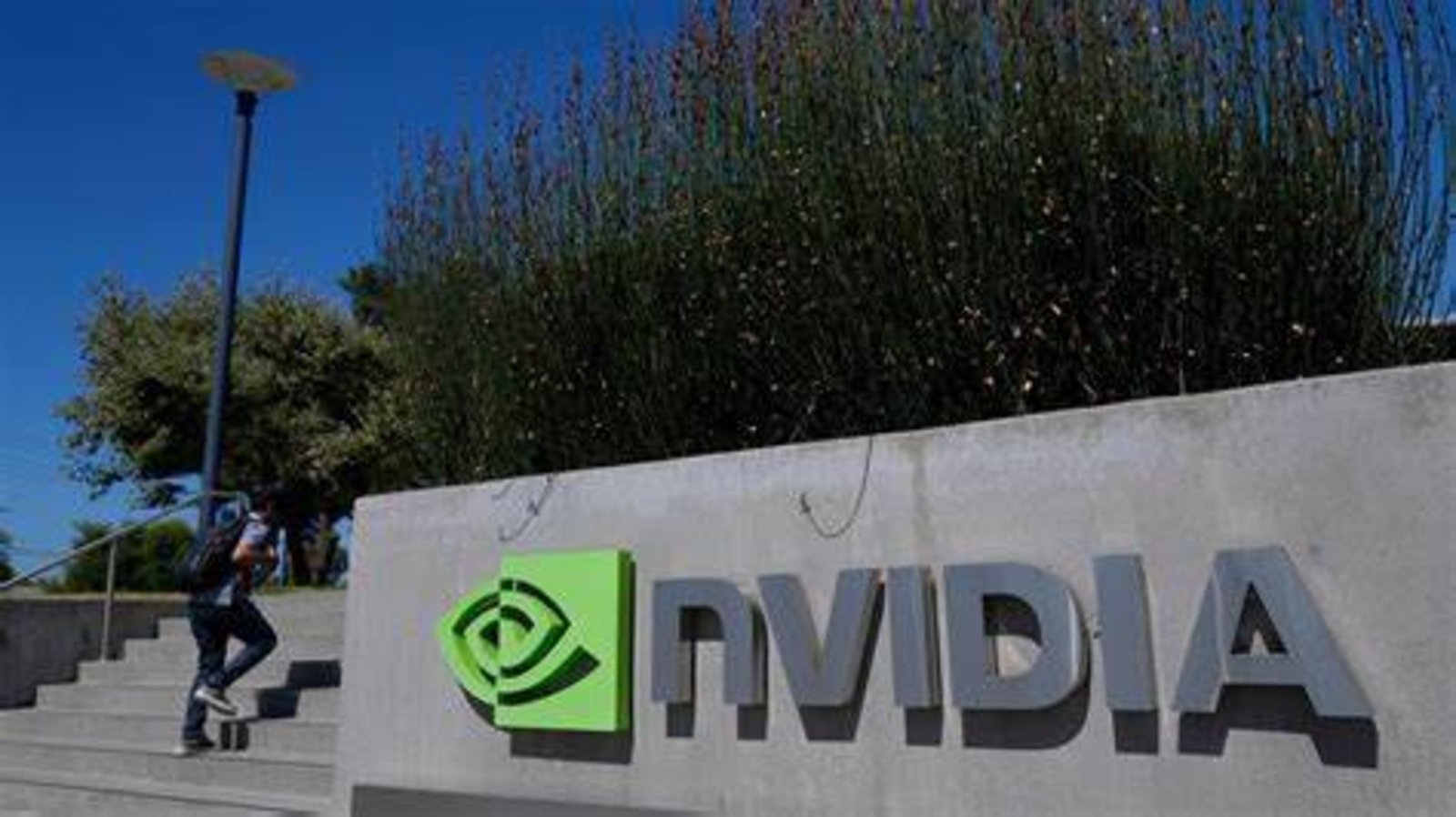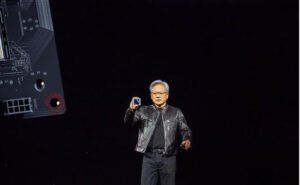
Nvidia is betting big on its future in artificial intelligence (AI) by pushing the limits of chip technology. The company’s newest AI chips, called Blackwell, represent a significant leap in performance. However, this ambition has brought unexpected challenges. This article explores the complexities of Nvidia’s Blackwell chips and the implications for the company’s future. Nvidia Blackwell: Breakthrough or Barrier?
Blackwell Chips: A Technological Leap
Nvidia’s Blackwell chips are designed to revolutionize AI performance. These chips are about twice the size of previous models. They contain 2.6 times more transistors.
The new chips are roughly the size of four Scrabble tiles arranged in a square. They house two advanced Nvidia processors and multiple memory components. This new design is more intricate than earlier models. The goal is to achieve unprecedented performance levels.

Manufacturing Challenges
Despite their promise, the Blackwell chips have presented significant manufacturing challenges. Nvidia has faced difficulties with production. The complexity of the Blackwell design is partly to blame. Instead of a single piece of silicon, these chips consist of several components joined together. This new assembly method requires near-perfect precision.
Any defect in one component can affect the entire chip. With more components involved, the risk of defects increases. Additionally, the heat generated during operation can warp materials at different rates. This can lead to problems in the chip’s functionality.
Impact on Profit Margins
Nvidia’s financial results have been affected by these manufacturing issues. However, the costs associated with producing Blackwell chips have narrowed profit margins. As a result, its stock fell by 6.4% on the following day.
The complexity of the Blackwell chips has impacted Nvidia’s bottom line. Analysts and industry experts note that lower yields in manufacturing are a significant concern. Any significant defect in a $40,000 Blackwell chip can affect overall production yields. This is a critical measurement in the chip-making industry.
Engineering Challenges
The engineering of Blackwell chips involves advanced technology. Nvidia has had to redesign parts of the Blackwell architecture to improve yields. No functional changes were made to the chips themselves, according to CEO Jensen Huang. Instead, the focus has been on refining the manufacturing process.
The new design includes a delicate mesh of silicon, metal, and plastic components. This design complexity adds to the difficulty of ensuring high production yields. Each chip must function flawlessly to meet Nvidia’s high standards.
Production Plans and Future Outlook
Chief Financial Officer Colette Kress has stated that production is expected to increase. Nvidia anticipates that Blackwell will contribute several billion dollars to revenue in the coming quarter.
The company has made changes to improve production yields. These changes are intended to address the issues faced during the manufacturing process. Nvidia’s focus on refining production techniques reflects its commitment to overcoming current obstacles.
Industry Impact and Technological Advancement
Blackwell chips represent a significant advancement in chip technology. The challenges faced by Nvidia are not uncommon in the tech industry. High-performance chips often involve complex manufacturing processes.
Nvidia’s efforts to push the boundaries of chip technology are setting new industry standards. As AI technology continues to evolve, the demand for advanced chips like Blackwell is likely to grow. Nvidia’s experience with Blackwell may influence future developments in AI chip technology.
Nvidia’s Blackwell chips are poised to create a significant ripple in the tech industry. These chips embody the latest advancements in semiconductor technology and artificial intelligence (AI). As Nvidia pushes the boundaries of what is possible with AI chips, the industry takes note. The Blackwell chips are not just a product; they represent a leap forward in how high-performance computing is approached.
One of the key impacts of Blackwell is the set of challenges it presents. Manufacturing such advanced chips involves unprecedented complexity. The need for precision in integrating multiple components and managing heat generation is a new frontier in chip design. These issues highlight the evolving nature of semiconductor technology, where size and performance are pushing manufacturers to innovate constantly. The difficulties faced by Nvidia serve as a learning opportunity for the entire industry. They demonstrate the need for improved processes and materials to manage the increasing complexity of modern chips.
Technologically, Blackwell chips advance the capabilities of AI systems. By packing more transistors into a single chip, Nvidia enhances processing power and efficiency. The performance gains from Blackwell chips could lead to breakthroughs in fields such as natural language processing, autonomous systems, and real-time data analysis.
Moreover, Nvidia’s focus on overcoming manufacturing hurdles sets a precedent for future developments. As other companies look to create similarly advanced products, they will face similar challenges. Nvidia’s solutions to these problems could guide future innovations and manufacturing strategies in the semiconductor industry.
In summary, the Blackwell chips not only represent a technological advancement for Nvidia but also set a new benchmark for the industry. They underscore the ongoing evolution of semiconductor technology and the continuous push towards more powerful and efficient AI systems.
Conclusion
Nvidia’s Blackwell chips highlight the company’s drive to lead in AI technology. The challenges associated with these chips underscore the complexities of advanced chip manufacturing. Despite these hurdles, Nvidia remains focused on overcoming production issues and achieving its financial goals. The outcome of this endeavor will have significant implications for both Nvidia and the broader tech industry.








